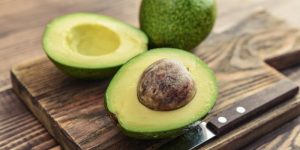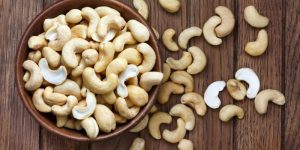The National Nutrition Health Program (PNNS) “Eat Move” promotes the benefits of fruits and vegetables, recommending the consumption of five portions per day (with one portion being between 80 and 100 grams). Rich in vitamins, minerals, fiber, and water, fruits are known to help prevent diseases such as cancer, diabetes, and cardiovascular conditions. However, while the World Health Organization (WHO) lists insufficient fruit consumption as one of the top ten risk factors for mortality, excessive intake can also pose risks—some of which can even be fatal, as highlighted in our slideshow.
Eating Too Many Fruits Can Lead to Weight Gain
Alexandra Retion, a dietitian-nutritionist, explains: “Consuming too many fruits—more than 800 grams per day—means consuming a lot of sugar, as fruits are primarily composed of simple sugars like glucose and fructose. Excess fructose can be converted into fat in the body.” Overeating fruits can also lead to digestive issues: “Too much fiber can irritate the digestive system, causing diarrhea and other discomforts, especially in sensitive individuals.”
Risks of Toxicity and Drug Interactions
Beyond overconsumption, the natural composition of some fruits can be harmful. Certain fruits may cause toxicity, interact negatively with medications, or worsen existing health conditions. To minimize risks, Alexandra Retion advises: “Always research unfamiliar fruits before consuming them, especially if you are on medication. Check medication labels for potential interactions with specific fruits.”
The safest approach? Opt for local and seasonal fruits. “Seasonal fruits are tailored to our needs—like citrus fruits in winter for vitamin C or water-rich fruits in summer to prevent dehydration,” she adds.
Fresh Fruits Are Best
While fresh fruits are ideal, fruit juices and smoothies should be consumed sparingly due to their high sugar content. Here are some specific fruits and their potential risks:
1. Apricot Pits: A Source of Cyanide

In July 2018, the French Agency for Food, Environmental, and Occupational Health & Safety (ANSES) warned about the risks of consuming apricot kernels. While often touted for their anti-cancer properties, they contain cyanide, which can cause dizziness, headaches, digestive issues, heart palpitations, and respiratory problems. The same applies to cherry, peach, and plum pits. “Avoid cracking or sucking on these pits to prevent poisoning,” advises Retion.
2. Avocado: Dangerous with Certain Medications

Avocados can be hazardous for individuals on blood-thinning medications due to their high vitamin K content, which promotes blood clotting. “Patients on anticoagulants should monitor their vitamin K intake to avoid complications,” says Retion. Additionally, avocados contain a protein called hevein, which can trigger latex allergies in sensitive individuals.
3. Rhubarb Leaves: A Risk of Poisoning

Rhubarb leaves contain oxalic acid, which can cause gastrointestinal distress and kidney stones. In severe cases, they may lead to convulsions and respiratory issues. “Only the stalks are safe to eat,” Retion emphasizes.
4. Lemon: A Risk of Kidney Stones

Despite its health benefits, excessive lemon consumption can erode tooth enamel, irritate mucous membranes, and cause stomach discomfort. Its zest contains oxalates, which can contribute to kidney stones in susceptible individuals. Additionally, lemons are diuretic and can lead to dehydration if consumed in excess.
5. Cashews: A Toxic Compound

Raw cashews contain urushiol, a toxic compound. However, commercially available cashews are heat-treated to remove this toxin, making them safe to eat. The same applies to almonds, which naturally contain cyanide but are safe once cooked.
6. Grapefruit: Dangerous with Certain Medications

Grapefruit can interfere with the metabolism of certain medications, including cholesterol-lowering drugs, immunosuppressants, and antiarrhythmics. “It blocks an enzyme that processes medications, potentially leading to overdose,” Retion explains. Always check medication labels for grapefruit interactions.
7. Elderberries: A Risk of Food Poisoning

Elderberries are beneficial when cooked but can cause nausea, vomiting, and diarrhea if consumed raw or unripe. In severe cases, they may lead to convulsions or coma, especially in vulnerable individuals.
8. Starfruit: A Risk for Kidney Patients

Starfruit contains neurotoxins that are dangerous for individuals with kidney issues, potentially worsening renal problems. Even healthy individuals should consume it in moderation—no more than one fruit every three days.
9. Olives: Not Recommended for Hypertension

Olives, often preserved in salty brine, can be problematic for individuals with high blood pressure. To reduce sodium intake, consider preparing olives at home with minimal salt.
10. Durian: Avoid with Alcohol

Durian, a tropical fruit, contains sulfur compounds that inhibit enzymes responsible for metabolizing alcohol. Consuming durian with alcohol can lead to severe liver toxicity. “Choose one or the other,” Retion advises.
While fruits are essential for a healthy diet, moderation and awareness of potential risks are key. Opt for fresh, local, and seasonal fruits, and always consult a healthcare professional if you have specific health concerns or are on medication. By doing so, you can enjoy the benefits of fruits while minimizing potential dangers.


